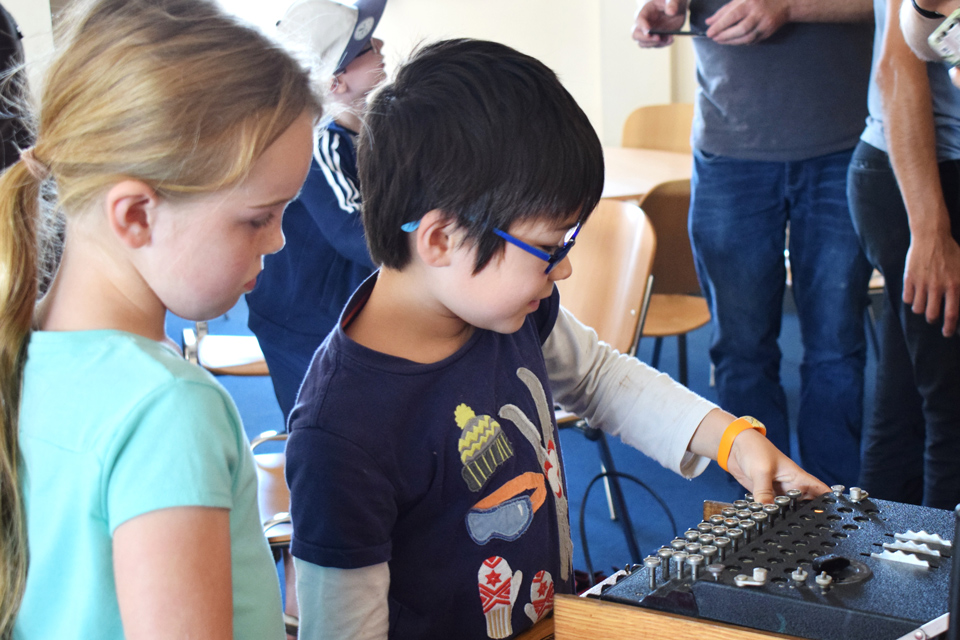High Learning Potential

What Does High Learning Potential Mean?
Potential Plus UK uses the term ‘high learning potential’ to mean the same as the term ‘gifted’. There are other terms used to mean the same things, especially in education, such as ‘gifted and talented’, ‘exceptional’, ‘more able’ and ‘most able’.
The concept of what it means to be intelligent varies across different contexts and cultures, but the term ‘gifted’ or ‘high learning potential’ most often refers to an ability to understand information well, make quick analyses and use memory capacity to learn quickly. This ability is useful in academic pursuits as well as high level careers and creativity.
The most common definition of children with high learning potential is those individuals with cognitive abilities in the top 2-5% of the population. Cognitive ability, IQ or ‘g’ (meaning general ability in theories of intelligence) is made up of different types of ability and it is generally accepted that a score in the top 2-5% of the population in one of the broad areas of cognitive ability is sufficient to be considered gifted or high learning potential.
In education in the UK, most identification of children as ‘most able’ or ‘more able’ is based on high academic achievement rather than cognitive ability as measured by a standardised test.
Why Does Potential Plus UK Use the Term High Learning Potential?
As an organisation we changed to using the term ‘high learning potential’ to describe the children we support in February 2013. We feel that the term more accurately represents children who have the potential to achieve highly but may not currently be doing so and who need support to do so. This is in contrast to the term ‘gifted’ which implies a skill that is refined to the point of achieving highly. There is a social stigma attached to the word ‘gifted’ that implies that an individual has all that is needed and does not need any support in order to do well.
We feel that the term reflects that the identification of such children is the starting point of being able to support them appropriately so that they are more likely to achieve their potential.
Parents of children with high cognitive abilities, as well as teachers in schools we support and the children themselves, told us that they felt the term ‘gifted’ was limiting and exclusive. Limiting in that it referred to academic abilities yet cognitive ability when connected with personality, preferences and creativity could lead to high achievement in many different areas. Exclusive in that it felt elitist, about being part of a club that not everyone could benefit from and about which background or opportunity played a part.
Find out more by downloading our free advice sheet PA101 High Learning Potential
Ability Versus Achievement
Broadly speaking, the term ‘ability’ refers to having the means or the skills to do something. The word ‘potential’ conveys a similar meaning. Whereas, the term ‘achievement’ refers to having accomplished or completed something.
When thinking about intelligence, having the intelligence, cognitive ability or potential to do something is part of what enables individuals to achieve. Having high cognitive ability means an individual has the potential to be able to achieve highly. There are, however, other factors that contribute to enabling that ability to become achievement. In school, having a strong verbal cognitive ability means that an individual would be more likely to be able to achieve well in reading, for example, given the right conditions.
It is common knowledge that correlation between ability and achievement is not perfect; this is because other factors contribute to an individual being successful. These factors could include environmental factors such as home and school, social and emotional factors such as motivation, self awareness and personality, as well as chance factors like friendships, location and opportunity.
This means that identifying individuals as being ‘gifted’ based on achievement measures only will mean there are a significant number of individuals who have high cognitive abilities but are not currently achieving highly who are missed and, therefore, unsupported.
Potential Plus UK subscribe to Pfeiffer’s Tripartite Model of Giftedness in our identification of children with high learning potential.

Characteristics of Children with High Learning Potential
There are many common characteristics of individuals with high learning potential. While different children with high cognitive ability have different mixtures of characteristics, most will display a majority of the 25 descriptors that have been selected as applicable to children with high learning potential of varying ages, socioeconomic backgrounds and gender. Many parents start their journey of high learning potential with their child through this set of characteristics.
Learn more about Characteristics of High Learning Potential »

Dual or Multiple Exceptionality
Dual or multiple exceptionality (DME) is the term used in the UK to describe children who have both high learning potential and a special educational need because of a learning difficulty or a disability. These could be neurological disabilities such as autism spectrum disorders, ADHD or dyspraxia; learning difficulties such as dyslexia, dysgraphia and dyscalculia; sensory and speech impairments; or physical disabilities.

Exceptionally and Profoundly Gifted Children
Exceptionally gifted children have cognitive abilities in the top 0.1% of the population, while profoundly gifted children have cognitive abilities in the top 0.03% of the population. Their characteristics and difficulties may set them apart from other children their age.
Learn more about Exceptionally and Profoundly Gifted Children »
